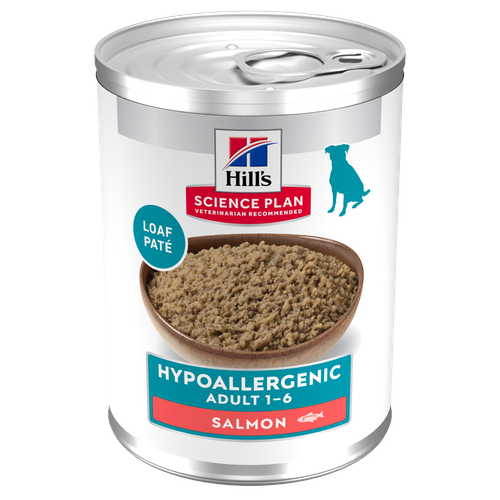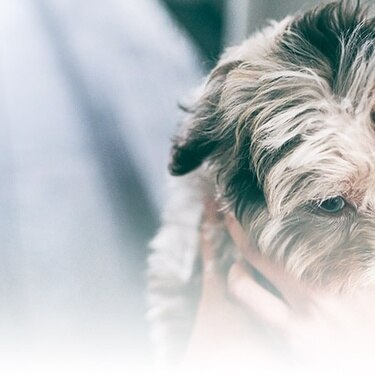
-
Find the right food for your petTake this quiz to see which food may be the best for your furry friend.Find the right food for your petTake this quiz to see which food may be the best for your furry friend.Featured products
 Adult Wet Dog Food with Beef
Adult Wet Dog Food with BeefHill's Science Plan Adult Multipack Wet Dog Food with Chicken, Beef & Turkey are complete premium pet foods for adult dogs from 1 year. Your dog will love these deliciously smooth and savoury minced loaves, formulated for balanced nutrition and overall health.
Shop Now Mature Adult Dog Food
Mature Adult Dog FoodHill's Science Plan Mature Adult Multipack Wet Dog Food with Chicken & Beef are complete premium pet foods for mature adult dogs from 7 years. Your dog will love these deliciously smooth and savoury minced loaves, formulated to deliver the appropriate amount of energy to support the needs of adult dogs.
Shop Now Puppy Food
Puppy FoodHill's Science Plan Puppy Multipack Wet Dog Food with Chicken & Beef are complete premium pet foods for growing puppies from weaning until 1 year old and for pregnant and nursing dogs. Your puppy will love these deliciously smooth and savoury minced loaves, formulated for balanced nutrition and overall health.
Shop NowFeatured products Light Adult Multipack Wet Cat Food with Chicken & Ocean Fish
Light Adult Multipack Wet Cat Food with Chicken & Ocean FishTender chicken chunks in gravy for cats, with L-carnitine and fewer calories for ideal weight management. Packed with high-quality protein, omega-6s, and vitamin E for shiny fur and healthy skin.
Shop Now Adult Multipack Wet Cat Food with Beef, Ocean Fish & Chicken
Adult Multipack Wet Cat Food with Beef, Ocean Fish & ChickenTender chunks in gravy for cats, with high-quality protein to maintain lean muscle. With vitamin E and omega-3s & -6s for healthy skin and balanced minerals to support healthy vital organs.
Shop Now Mature Adult Wet Cat Food with Chicken
Mature Adult Wet Cat Food with Chicken
Tender chicken chunks in gravy for mature adult cats. Made with easy-to-digest ingredients, high-quality protein for lean muscle maintenance and antioxidant vitamins C+E for optimal health.
Shop Now -
Dog
- Dog Tips & Articles
-
Health Category
- Weight
- Food & Environmental Sensitivities
- Urinary
- Digestive
- Joint
- Kidney
-
Life Stage
- Puppy Nutrition
- Adult Nutrition
- Senior Nutrition
Cat- Cat Tips & Articles
-
Health Category
- Weight
- Skin & Food Sensitivities
- Urinary
- Digestive
- Kidney
-
Life Stage
- Kitten Nutrition
- Adult Nutrition
Featured articles Show some love with wet foods: a great choice for pets with health issues
Show some love with wet foods: a great choice for pets with health issuesShow some love with wet foods: a great choice for pets with health issues.
Read More The Right Diet For Your Pet
The Right Diet For Your PetIn people, the right diet is very important. If you are eating the wrong way for your metabolism, activity level, age and lifestyle you could end up with health issues.
Read More The Incredible Science Behind Your Pet's Microbiome
The Incredible Science Behind Your Pet's MicrobiomeLearn what your pet's microbiome is, how it contributes to your pet's gut and overall health, and why nutrition is important in maintaining healthy microbiomes.
Read More -


Anyone who’s been around puppies knows that they’re little furballs of energy. Between work, family time, and rest, it might be difficult for you to set aside time to not only train your puppy, but also make sure that they get the exercise they need. Remember: an active puppy is a healthy puppy. Keeping yours active is an important building block to their overall health and relationship with you.
Why Exercise is Important
Exercise is essential to your dog’s mental and physical wellbeing and, when done together, it also helps you form a strong bond that continues throughout their life. Just as regular exercise is important for your health and happiness, the same is true for your puppy. Exercise (when done correctly):
- Reduces risk of obesity and associated health risks.
- Improves cardiovascular health.
- Strengthens muscles and increases agility.
- Supports training when walking is done on a regular schedule.
- Increases your puppy’s ability to cope with your absence.
- Reduces behavioural problems through physical, intellectual, and social stimulation.
- Reduces digestive problems and constipation.
- Builds confidence and trust, especially in timid puppies.
- Provides socialisation opportunities with people and other dogs.


Tasty Tips
Destructive Behaviours
Puppies are busy and inquisitive as they learn about the world they inhabit, and activities like running, playing and exploring provide a great natural outlet. Without those outlets, your puppy’s energy can manifest in problematic or destructive behaviours instead, such as:
- Hyperactivity and restlessness at night.
- Chewing, digging, or scratching.
- Raiding the rubbish bin.
- Knocking over furniture.
- Jumping on people.
- Playing rough and biting.
- Barking and whining as a result of frustration.
How much exercise does a puppy need?
The exact amount of exercise a puppy needs depends on a number of different factors such as their age, breed, and level of fitness. It is important to remember that getting too much exercise can be just as bad for them as not getting enough. Although they are often far more energetic, puppies require shorter periods of exercise than adult dogs, followed by long naps. Too much puppy exercise can result in exhaustion and joint damage, especially in larger breeds.
According to Blue Cross, a good starting point is to aim for five minutes of exercise, once or twice a day, for each month of age. For example, three-month-old puppies should have 15 minutes of exercise twice a day, then 20 minutes twice a day at four months, and so on). Always pay attention to how your puppy handles this amount of exercise and decrease the amount if needed.
How to exercise a puppy
Even if you have a big garden for your puppy to run around in, they need more than that to burn excess energy. Short walks and jogs are healthy activities for both you and your puppy. Structured games like fetch, hide-and-seek, and tug-of-war can also help strengthen the bond between you and your puppy, as well as teach them self-control. When your puppy is home alone, keep them occupied with safe chew toys and food-dispensing toys that burn mental energy.
Avoid forced exercise, which can lead to injury and a lifetime of health problems for your puppy. Forced exercise can include excessive running, bicycling or skating with your puppy on a lead, very long games of fetch or chase, and long, fast-paced walks.
Reviewed by Dr. Aileen Pypers, BSc, BVSc, PGDip


One of our staff authors prepared this article for you
Related products

Hill's Science Plan Adult Multipack Wet Dog Food with Chicken, Beef & Turkey are complete premium pet foods for adult dogs from 1 year. Your dog will love these deliciously smooth and savoury minced loaves, formulated for balanced nutrition and overall health.

Hill's Science Plan Hypoallergenic Adult Wet Dog Food with Salmon is a complete premium pet food for all adult dogs from 1 year. This savoury tinned loaf is specially formulated for dogs with delicate skin and stomachs. It features a single novel animal protein source and is grain-free.

Hill's Science Plan Mature Adult Multipack Wet Dog Food with Chicken & Beef are complete premium pet foods for mature adult dogs from 7 years. Your dog will love these deliciously smooth and savoury minced loaves, formulated to deliver the appropriate amount of energy to support the needs of adult dogs.

Hill's Science Plan Puppy Multipack Wet Dog Food with Chicken & Beef are complete premium pet foods for growing puppies from weaning until 1 year old and for pregnant and nursing dogs. Your puppy will love these deliciously smooth and savoury minced loaves, formulated for balanced nutrition and overall health.
Related articles

Learn effective tips for feeding a dog that's a picky eater and ensure proper nutrition for a finicky eater. Discover tips for pet parents at Hill's Pet UK.

How, when and what to feed your new puppy is an important decision, learn more about the things to consider for feeding your puppy.

Many human foods are dangerous to dogs. Read about 5 of the worst toxic food offenders that can kill your dog - and how much it takes to hurt them.

Learn about the potential health risks of a raw diet for dogs and why they aren't the best option for your pup or you.

Put your dog on a diet without them knowing
Our low calorie formula helps you control your dog's weight. It's packed with high-quality protein for building lean muscles, and made with purposeful ingredients for a flavourful, nutritious meal. Clinically proven antioxidants, Vitamin C+E, help promote a healthy immune system.
Put your dog on a diet without them knowing
Our low calorie formula helps you control your dog's weight. It's packed with high-quality protein for building lean muscles, and made with purposeful ingredients for a flavourful, nutritious meal. Clinically proven antioxidants, Vitamin C+E, help promote a healthy immune system.

